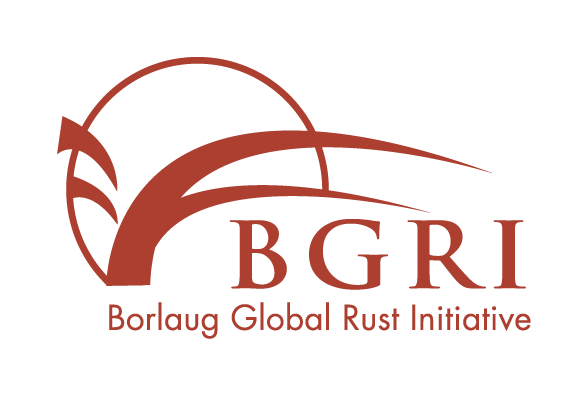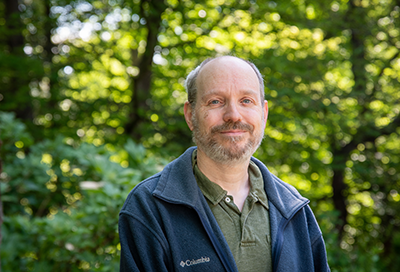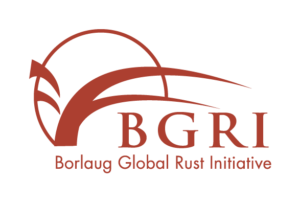A team from Mexico’s National Institute for Forestry, Agriculture and Livestock Research (INIFAP) program earned the Borlaug Global Rust Initiative (BGRI) 2022 Gene Stewardship award for their long-term contribution to Mexican wheat cultivation and their efforts to expand impacts worldwide by emphasizing durable rust resistance.
The BGRI Gene Stewardship Award is the premier recognition for researchers serving a national breeding program or other nationally based institution for their contribution to wheat rust resistance research. The INIFAP team focused on research and breeding adult plant resistance (APR) to leaf rust and has released many resistant varieties, which led to the stabilization of leaf rust in bread wheat.
The award was presented September 9 at the BGRI 2022 Technical Workshop.
The team includes:
- Julio Huerta Espino (cereal breeder and pathologist)
- Héctor Eduardo Villaseñor Mir (cereal breeder)
- René Hortelano Santa Rosa (cereal breeder)
- Eliel Martínez Cruz, (cereal chemist)
- María Florencia Rodríguez García (cereal pathologist)
- Ernesto Solís Moya (wheat breeder)
- Jorge Iván Alvarado Padilla (wheat breeder)
“The INIFAP team’s success in achieving a high level of stable resistance sheds a hopeful light on the possibility that breeding resistance to one rust equals to breeding resistance to all rusts in wheat—one of the most meaningful ways to practice gene stewardship,” said Ronnie Coffman, vice-chair of the BGRI and professor emeritus of plant breeding and genetics at Cornell University.
Maricelis Acevedo, associate director for science for the BGRI and research professor of global development at Cornell, said “The wheat community is indebted to the INIFAP group for the wide range of populations, advanced breeding lines and cultivars adapted to multiple wheat environments that have become essential germplasm for validating new genomic breeding platforms. The rust resistance genes reliably phenotyped by the INIFAP team for decades has ensured the credibility of such DNA markers and supported the work of leading wheat molecular genetic laboratories around the world.”
The INIFAP group’s contributions to Mexican wheat production included the release of many high yielding wheat varieties with durable partial resistance to wheat rusts. Stem and leaf rusts were among the most widespread stresses of wheat in Mexico, causing yield losses sometimes just a few years after new resistant varieties were released due to rapid pathogen mutations. The deliberate selection and release of wheat varieties with partial rust resistance has stopped the boom-and-bust cycle of the rusts in Mexico and contributed to farmer’s income and care of the environment since these varieties do not require fungicide applications.
“The team from INIFAP, through hard work and dedication, has delivered wheat varieties with durable resistance to the wheat rust pathogens affecting Mexican wheat. This is a truly remarkable achievement that has had tremendous impact in Mexico and collaborating with CIMMYT has allowed those impacts to spread worldwide,” said Robert Park, the Judith & David Coffey Chair in Sustainable Agriculture at the University of Sydney.
“INIFAP’s work with CIMMYT to release varieties with APR to leaf rust has provided durable resistance for Mexico and averted major leaf rust epidemics on bread wheat for the past two decades. In addition, partnerships with the Kenya Agriculture and Livestock Organization (KALRO), and the Ethiopian Institute for Agricultural Research (EIAR) have facilitated the deployment of wheat varieties with adult plant resistance in Kenya and Ethiopia,” said Matt Rouse, Research Plant Pathologist with the USDA-ARS.
In the early 2000s, Nobel Prize-winner Norman Borlaug, Coffman and a team of researchers met to galvanize support for a global consortium of scientists to tackle the problem of Ug99. In 2008, Borlaug and Coffman founded the BGRI at Cornell University with partners from around the world. Since 2012, the BGRI has presented the Gene Stewardship Award in recognition of researchers serving a national breeding program or other nationally based institution. The Gene Stewardship Award has been presented to teams from Australia, Canada, Ethiopia, India, Kenya, Nepal and the United States.
The BGRI is funded through support from the Bill & Melinda Gates Foundation and the UK’s Foreign, Commonwealth and Development Office.







